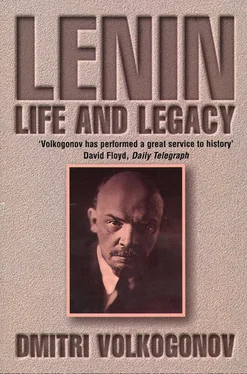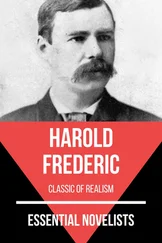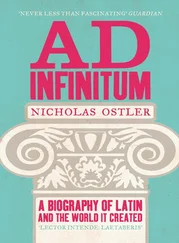While absorbing Marxism from the writings of the doctrine’s founders, Lenin also took up ideas from a wide range of thinkers and writers, a fact suggesting perhaps a developed ability to comprehend and, by applying his own ‘ferment’, to absorb, digest and make those ideas his own. He was, however, never able to assimilate the ideas of the liberals, who proclaimed the rule of law, or the ‘Economists’, who wanted the workers to flourish, or the Western democrats, who put parliamentary government above all else. Lenin’s ‘discovery’ of Marxism was thus extremely selective; he saw in it only what he wanted to see. Even Trotsky, who after October 1917 and to the end of his days described himself as a Leninist, criticized Lenin at the turn of the century for his lack of ‘flexibility of thought’, his belittling of the rôle of theory, which could lead to a ‘dictatorship over the proletariat’. 64
By the turn of the century Lenin had acquired the conviction that, as far as his opponents were concerned, his theoretical position was unassailable, and henceforth he exhibited a rare hostility to everything that would not fit the Procrustean bed of his preconceptions. In a letter to Maxim Gorky in 1908 – the famous writer was a major benefactor of the revolutionary movement and had a close, if complex, relationship with Lenin after 1907 – on the philosophical work of the Bolshevik Alexander Bogdanov, Lenin wrote: ‘After reading it, I got into a rage and became unusually furious: it became clear to me that he has taken an arch-wrong path.’ He went on: ‘I became frenzied with indignation.’ What had made him so angry was that the Bolsheviks might draw their teaching on the dialectic ‘from the putrid well of some French “positivists” or other’. 65 His Marxism was, however, plainly one-sided, Blanquist, super-revolutionary. Like a man ‘with the truth in his pocket,’ Viktor Chernov, leader of the Socialist Revolutionaries, wrote, ‘he did not value the creative search for truth, he had no respect for the convictions of others, no feeling for the freedom that is integral to any individual spiritual creativity. On the contrary, he was open to the purely Asiatic idea of making the press, speech, the rostrum, even thought itself, the monopoly of a single party which he raised to the rank of a ruling caste.’ 66
Marx and Engels were theorists. Lenin turned their teaching into a catechism of class struggle. As the writer Alexander Kuprin observed: ‘For Lenin, Marx was indisputable. There isn’t a speech in which he does not lean on his Messiah, as on the fixed centre of the universe. But there can be no doubt that if Marx were to look down from where he is on Lenin and his Russian, sectarian, Asiatic Bolshevism, he would repeat his famous remark, “Excuse me, monsieur, but I am no Marxist.”’ 67
Russian social democrats subordinated the moral side of their political programmes to the practical interests of the moment. Vera Zasulich, a leading member of the Russian social democratic movement, once remarked that Marxism had ‘no official system of morals’. 68 The proletariat and everyone who called themselves socialists valued above all solidarity and loyalty to the ideal: ‘Whatever serves Communism is moral.’ The Communists – the author of these lines included – saw wisdom of the highest order in this precept, not a fundamentally immoral approach which could be used to justify any crime against humanity along with the most trivial political malpractice. Such justification was made not only in the midnight of the Stalin era, but in the earlier years of the Soviet regime, and the later.
In November 1920, at the height of the civil war in Russia, the head of the Cheka, Felix Dzerzhinsky, informed Lenin that ‘403 Cossack men and women, aged between fourteen and seventeen, have arrived without documentation in Orel from Grozny to be imprisoned in the concentration camp for rebellion. They cannot be accommodated as Orel is overcrowded.’ 69 Lenin was not moved to halt the crime against ‘men and women aged between fourteen and seventeen’, and merely wrote ‘For the archives’ on the document, thus establishing the tradition that, no matter how callous, cruel and immoral an act of the regime might be, it would be recorded and stored in the archives for a history that would never be written as long as that regime lasted. The doctrine of force as a universal means was sufficient justification for such laconic gestures. From an early stage, Lenin had surrounded himself with people who were receptive to such an approach, energetic, bold and capable people whom he taught to be morally indiscriminate. The domestic Lenin was, however, rather different. Alexander Potresov, who saw him at close quarters between 1895 and 1903, wrote that ‘at home Lenin was a modest, unpretentious, virtuous family man, engaged in a good-natured, sometimes comic, daily war with his mother-in-law, the only person in his immediate environment who could stand up to him’. 70
Throughout his life, Lenin’s family circle consisted mostly of women: mother, sisters, wife and mother-in-law. In the absence of any children of his own, he himself was the constant object of their care and concern. He differed from his Party comrades in his puritanical restraint, steadiness and constancy, and would have been a model husband, had it not been for the ten-year relationship he began in 1909 with a lively woman revolutionary called Inessa Armand.
In none of the mass of writing about Lenin is there any mention of an affair of the heart in his youth. It appears that his preoccupation with books and revolutionary dreams left no room for the normal feelings that usually occupy the mind of any young man. There is no broken first marriage, no stormy romance, no love at first sight, no unhappy love affair. Yet there was something like an undying love. When he returned to St Petersburg in January 1894, Lenin established contacts, legal and illegal, with the local Marxists. With little to do, he was free to spend time with his new acquaintances. One day in February, at the apartment of an engineer called Klasson, a group of Marxists gathered in the cosy sitting-room, among them two young women, Apollinaria Yakubova and Nadezhda Krupskaya. At first, Lenin spent time with both of them, then he started visiting Nadezhda’s home on the Nevsky Prospekt on a more regular basis. Nadezhda lived with her mother, Yelizaveta Vasilievna, the widow of an army officer whose career had been cut short when he was cashiered for reading Chernyshevsky and Herzen, and who apparently belonged to the revolutionary organization Land and Freedom. He had been dismissed and even put on trial, then after several years of indecision was exonerated, but banned from public service. When he died, the family had moved to St Petersburg, where they lived on his pension. Nadezhda taught at a Sunday evening school for workers.
Her mother made tea while the young people talked about Plekhanov, Potresov, the book the young man – who was already quite bald – was writing, the need to establish contact with European social democrats. We do not know what Yelizaveta thought of her future son-in-law, except that she remained independent of him all her life, and was known to have been openly critical of ‘people who don’t do any real work’. 71 The clever young man kept appearing at the apartment, but he seemed more interested in politics than in Nadezhda.
Lenin was also friends with Apollinaria Yakubova, and sometimes the three of them would go out together. When he was arrested in December 1895 for being part of a Marxist propaganda circle – an almost routine event for men of Lenin’s cast of mind at the time – both young women tried to visit him at the pre-trial prison on Shpalernaya Street. Lenin wrote Nadezhda a coded message, saying they should walk past the prison at 2.15 so that he could catch a glimpse of them through the window. 72 It is difficult to establish the nature of the relations between these three young people, especially as the almost hundred-year-old ‘conspiracy’ about this area of their lives has destroyed almost any trace.
Читать дальше












